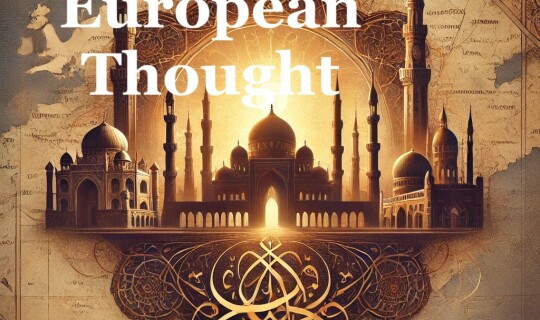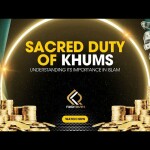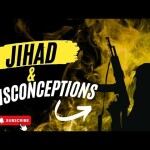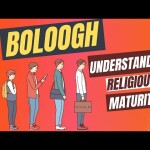A Journey of Faith and Discovery
Introduction:
The story of how the Bible led Abdul Malik (M.J.) LeBlanc to Islam is one of faith, introspection, and a quest for truth. Born and raised in Christianity, the author spent 28 years deeply immersed in his faith, even aspiring to become a minister in the African Methodist Episcopal Church. However, his spiritual journey took a transformative turn when he began to question Christian doctrines and explore Islam. This article encapsulates his reflections and insights from the book "The Bible Led Me to Islam," offering readers an exploration of theological comparisons, scriptural interpretations, and a personal journey toward Islam.
Christianity and the Search for Truth
LeBlanc’s initial doubts about Christianity stemmed from unanswered questions and contradictions he observed in the Bible. One key question revolved around the origins of the term “Christianity,” which Jesus himself never used. He notes that the term was first applied by pagans and Jews to describe Jesus’ followers decades after his departure. Furthermore, Jesus emphasized the worship of the One God (Matthew 22:37) and adherence to divine commandments, yet many Christian practices seemed to deviate from this foundational teaching.
LeBlanc also critiqued the inconsistency in how the Bible addresses core doctrines. For instance, he observed contradictions in the genealogy of Jesus (Matthew 1:6-16 vs. Luke 3:23-31) and differing accounts of events such as Judas’ death (Matthew 27:5 vs. Acts 1:18). These discrepancies raised questions about the Bible's authenticity as the unaltered Word of God.
Key Points of Conversion to Islam
LeBlanc’s journey toward Islam was marked by several pivotal realizations:
- The Concept of God’s Oneness: Verses like Deuteronomy 6:4 and Mark 12:29 emphasized the absolute Oneness of God, which resonated deeply with LeBlanc. He found the Christian doctrine of the Trinity to be inconsistent with these teachings and saw the Islamic concept of Tawhid (monotheism) as a purer representation of divine unity.
- Jesus’ Humanity and Prophet hood: LeBlanc was struck by biblical verses where Jesus refers to himself as a servant of God (John 17:3, Matthew 12:18) and acknowledges a higher authority (John 14:28). These statements aligned with the Quran’s portrayal of Jesus as a revered prophet, not divine.
- Scriptural Authenticity: The inconsistencies and contradictions in the Bible led LeBlanc to question its authenticity. In contrast, the Quran’s preservation and consistency over 1,400 years, along with its linguistic perfection, convinced him of its divine origin.
- Daily Worship and Connection to God: Islam’s practical guidance on maintaining a constant state of worship, as seen in practices like regular prayer (Salah) and supplications, provided a means to fulfill the biblical command to “pray without ceasing” (1 Thessalonians 5:17).
- Clarification of Core Beliefs: Doctrines such as original sin and the need for atonement through Jesus’ crucifixion did not align with LeBlanc’s understanding of divine justice. He found the Islamic view—that individuals are accountable for their own actions (Quran 6:164)—to be more logical and fair.
- Prophecies About Muhammad: LeBlanc was intrigued by biblical references that he interpreted as foretelling the coming of Prophet Muhammad (e.g., Deuteronomy 18:18). This connection strengthened his belief in the continuity of divine messages.
Understanding the Bible’s Limitations
Another major point of reflection for LeBlanc was the multitude of versions of the Bible, each with differing interpretations and omissions. He points to historical events like the Council of Nicaea in 325 CE, where Emperor Constantine and church authorities decided which gospels to include in the New Testament. This process excluded numerous texts, such as the Gospel of Barnabas, which align more closely with Islamic teachings.
LeBlanc highlights how the concept of the Trinity, central to Christianity, was not taught by Jesus but was instead introduced centuries later by church leaders. He references biblical verses like Deuteronomy 6:4 and Mark 12:29, which emphasize the Oneness of God, arguing that the Trinity contradicts these teachings. He also critiques the celebration of Christmas, noting its roots in pagan traditions rather than the life and teachings of Jesus.
Jesus in Christianity and Islam
The author’s exploration of Jesus’ role as depicted in the Bible versus the Quran is central to his narrative. While Christians often view Jesus as divine or the Son of God, LeBlanc found compelling evidence in both scriptures to support the Islamic perspective of Jesus as a revered prophet. For instance, Jesus’ own words in John 17:3 affirm the Oneness of God and his role as a servant and messenger. The Quran echoes this in verses like 3:45, where Jesus is described as a “word” from God, emphasizing his humanity and prophetic mission.
LeBlanc also challenges the doctrine of original sin and the need for atonement through Jesus’ crucifixion. He argues that the concept of inherited sin is absent from the teachings of Jesus and instead reflects later theological developments. The Quran, on the other hand, asserts that every individual is responsible for their actions (6:164), a belief that resonated deeply with the author.
The Quran’s Guidance and Clarity
LeBlanc’s study of the Quran provided him with clarity and answers to the questions that had long troubled him. He was particularly struck by the Quran’s emphasis on the continuity of divine messages through prophets, including Adam, Moses, David, and Jesus. The Quran acknowledges previous scriptures while correcting human alterations, as seen in verses like 5:15-16.
Islam’s holistic guidance on daily life further appealed to LeBlanc. He discovered that Islamic practices, such as prayer, charity, and ethical conduct, aligned with biblical teachings yet offered a complete framework for living in submission to God. The Quran’s preservation over centuries and its linguistic and literary perfection convinced him of its divine origin.
Reflections on Worship and Submission
One of the pivotal moments in LeBlanc’s journey was his realization of the Quran’s practical approach to fulfilling the biblical injunction to “pray without ceasing” (1 Thessalonians 5:17). Islam’s guidance encompasses every aspect of life, from waking up to eating, interacting with others, and even using the bathroom. This comprehensive approach enabled him to maintain a constant state of worship and mindfulness of God.
Furthermore, LeBlanc appreciated the simplicity and universality of Islamic worship. The focus on the Oneness of God, free from intermediaries or complex doctrines, resonated deeply with him. He saw this as a return to the pure monotheism taught by all prophets.
Lessons for Seekers of Truth
LeBlanc’s journey offers valuable lessons for those exploring Islam. He encourages readers to approach the Bible and Quran with an open mind, setting aside preconceived notions and societal influences. His story underscores the importance of personal reflection and seeking knowledge from authentic sources.
The author also emphasizes the need to distinguish between the teachings of Jesus and later interpretations by theologians. By doing so, he believes one can uncover the original monotheistic message that aligns with Islam.
Conclusion
Abdul Malik LeBlanc’s transformation from a devout Christian to a Muslim is a testament to the power of sincere inquiry and the pursuit of truth. His reflections on the Bible and Quran highlight the shared heritage of these scriptures while shedding light on their differences. For those interested in Islam, his journey serves as both inspiration and a guide to understanding the essence of faith: submission to the One True God. Through his experiences, LeBlanc invites readers to embark on their own journey of discovery, guided by the timeless message of monotheism.
Please click the link to read his original book: https://books.findtruth.co.uk/ebooks/the-bible-led-me-to-islam










